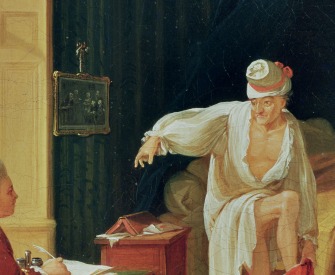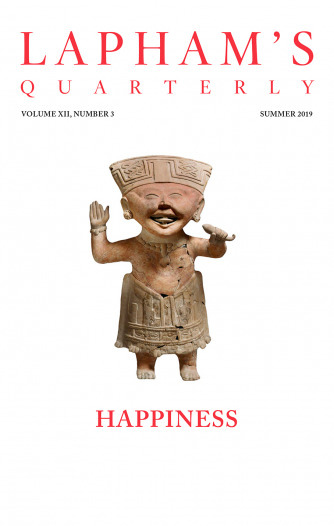From a man’s face, I can read his character. If I can see him walk, I know his thoughts.
—Gaius Petronius Arbiter, 60Doors of Perception
Voltaire asks, “Do we live in a dream?”
Are all appearances deceptive? Have our senses been given us only to trick us? Is everything error? Do we live in a dream?
We see the sun still setting when it is below the horizon. A square tower seems to be round. A straight stick in water seems to be bent. You see your face in a mirror; the image appears to be behind the glass when it is neither behind nor before it. The glass itself, seemingly so smooth and even, is made up of tiny projections and pits. The finest and fairest skin is a bristling net of minute hairs. What is large to us is small to an elephant; what is small may be a whole world to an insect.
Nothing is either as it appears to be, or where we think it is. Philosophers, weary of being deceived, have in their petulance declared that nothing exists but what is in our mind. They might have gone all the way and concluded that, the nature of the mind being as elusive as that of matter, there is nothing real either in matter or mind. Perhaps it is in this despair of ever knowing anything that certain Chinese philosophers say that nothing is the beginning and end of all things.
You do not see the net of hairs of the white and delicate skin you idolize. Organisms a thousand times less than a mite perceive what escapes your vision; they lodge, feed, and travel about on it as in an extensive country; those on a right arm are ignorant that creatures of their own species exist on a left. If you were so unfortunate as to see what they see, this charming skin would transfix you with horror.
All is in due proportion. The laws of optics, which show you an object where it is not, make the sun appear two feet in diameter when it is a million times larger than the earth, a size impossible for your eye to encompass. Our senses assist much more than they deceive us.

Voltaire
From The Philosophical Dictionary. Published anonymously in Geneva, this work was censored by the Catholic Church and criticized by the city prosecutor as a “deplorable monument of the extent to which intelligence and erudition can be abused.” Copies were burned in France and Switzerland. In 1778, at eighty-three years old, Voltaire returned to his native Paris after a twenty-three-year absence. He died four months later but was denied a Christian burial. His remains were enshrined in the Panthéon in 1791.

